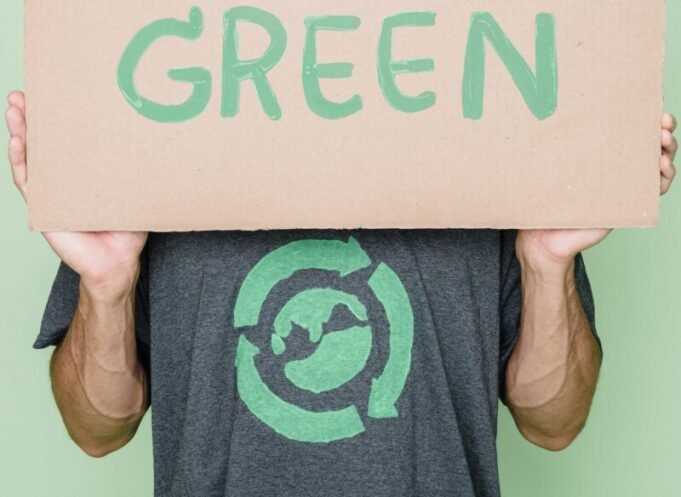Urban fashion has long been associated with fast, disposable trends. But today’s eco-conscious urbanites are seeking out ethical and sustainable clothing that makes a statement while reflecting their values. Sustainable fashion offers the urban dweller an opportunity to look stylish while supporting people and the planet.
The Rise of Sustainable Fashion
Sustainable fashion refers to clothing that is designed, manufactured, distributed and used in ways that are environmentally and socially responsible. This includes using eco-friendly materials, fair labor practices, and transparent supply chains.
The sustainable fashion movement has steadily gained momentum over the past decade. This growth is driven by increased awareness of issues like climate change, pollution, and sweatshop labor practices. Consumers, especially millennials and Gen Z, are becoming more conscious of the impact of their purchases. A Nielsen study found that 73% of millennials are willing to pay more for sustainable fashion.
Brands big and small are responding to this shift in consumer values by embracing ethical and eco-friendly practices. According to a McKinsey report, searches for “sustainable fashion” tripled between 2016 and 2019. The global market for sustainable fashion is projected to grow to $8.25 billion by 2023.
Key Sustainable Fashion Trends
Eco-Friendly Materials
Sustainable brands are using materials that have a lighter environmental footprint, like organic cotton, hemp, bamboo, recycled polyester, and plant-based leathers. These materials are renewable, biodegradable, and use less water and pesticides to produce.
Ethical Manufacturing
To ensure fair working conditions, many brands manufacture locally or partner with factories that pay living wages and prohibit forced labor. Blockchain technology is also being used to bring transparency to complex global supply chains.
Slow Fashion
The slow fashion movement emphasizes quality construction and timeless design over fast-changing trends. Brands release smaller collections and encourage consumers to buy fewer, well-made staples.
Vintage and Upcycled Fashion
Buying secondhand clothing reduces waste and extends the life of garments. Upcycling repurposes used materials into new fashions, keeping textiles out of landfills.
Multifunctional and Versatile Designs
Sustainable brands create versatile pieces that can be worn in multiple ways, like convertible dresses and reversible coats. Designs are high-quality and built to last through years of wear and reuse.
Sustainable Clothing for the Urbanite
Here are some of the top sustainable clothing items that are perfect for eco-stylish city living:
Sustainable Denim Jeans
Jeans are a wardrobe staple. Look for jeans made from organic cotton or incorporating recycled denim. Brands like Levi’s and Boyish Jeans offer sustainable denim options.
Ethical Athleisure and Basics
Activewear and basics like t-shirts, tanks, and leggings are everyday essentials. Opt for sustainable brands like Girlfriend Collective, Boody, and Pact.
Eco-Friendly Dresses
Every urban wardrobe needs easy, versatile dresses. Check out Reformation, Known Supply, and Christy Dawn for sustainably made dresses in classic and trendy silhouettes.
Sustainable Coats and Jackets
Stay warm and stylish with outerwear from sustainable brands like Outerknown, Everlane, and Patagonia. Look for natural materials like merino wool and recycled synthetics like fleece.
Eco-Conscious Footwear
Footwear has major environmental impacts. Try sustainable sneaker brands like Veja and Cariuma. For sandals, flats, and boots, check out Nisolo and Oka-B.
Ethical Handbags and Accessories
Elevate your look with vegan leather handbags from Matt & Nat or ethically made scarves and hats from brands like Apolis.
Shopping Sustainably in the City
Online Sustainable Fashion Retailers
Online shopping makes sustainable brands accessible. Check out e-commerce sites like Reformation, Pact, Amour Vert, and Known Supply.
Sustainable Fashion Boutiques
Look for independent boutiques focused on ethical fashion. Well-curated shops offer an opportunity to discover new designers.
Vintage and Consignment Stores
Urban areas are often full of secondhand and vintage stores. Shopping pre-owned is a sustainable choice. Be sure to check out neighborhood gems.
Clothing Rentals
Services like Rent the Runway allow you to rent designer pieces for a fraction of retail prices. This reduces waste from fast fashion.
Clothing Swaps
Organize a clothing swap with friends or find one in your community. This stretches the life of clothing that’s collecting dust in your closet.
Local Sustainable Markets and Pop-Ups
Farmers markets and pop-up events are great places to discover ethical fashion and accessory brands based in your city.
Wearing Sustainable Fashion in the City
Capsule Wardrobe
Build a thoughtfully curated capsule wardrobe of versatile, quality pieces that mix and match. A capsule reduces waste and clutter.
Care and Repair
Follow garment care instructions to extend the life of clothes. Mend, patch, or reinforce pieces that get worn. Tailoring can modernize pieces.
Creative Layering
Layering allows you to be strategic and creative with your wardrobe. Pair dresses with jackets, sweaters with shirts, and more.
Reuse and Repurpose
Give old clothes new life by re-wearing them in creative ways or repurposing them for other uses.
Rent or Swap for Occasions
Rent formalwear or accessories for events. Swap clothes with friends when you need something new and exciting.
Urban dwellers can lead the way in sustainable fashion. By supporting ethical brands, shopping secondhand, and creatively using our wardrobes, we vote with our dollars to revolutionize the fashion industry. Small steps make a collective impact.



































